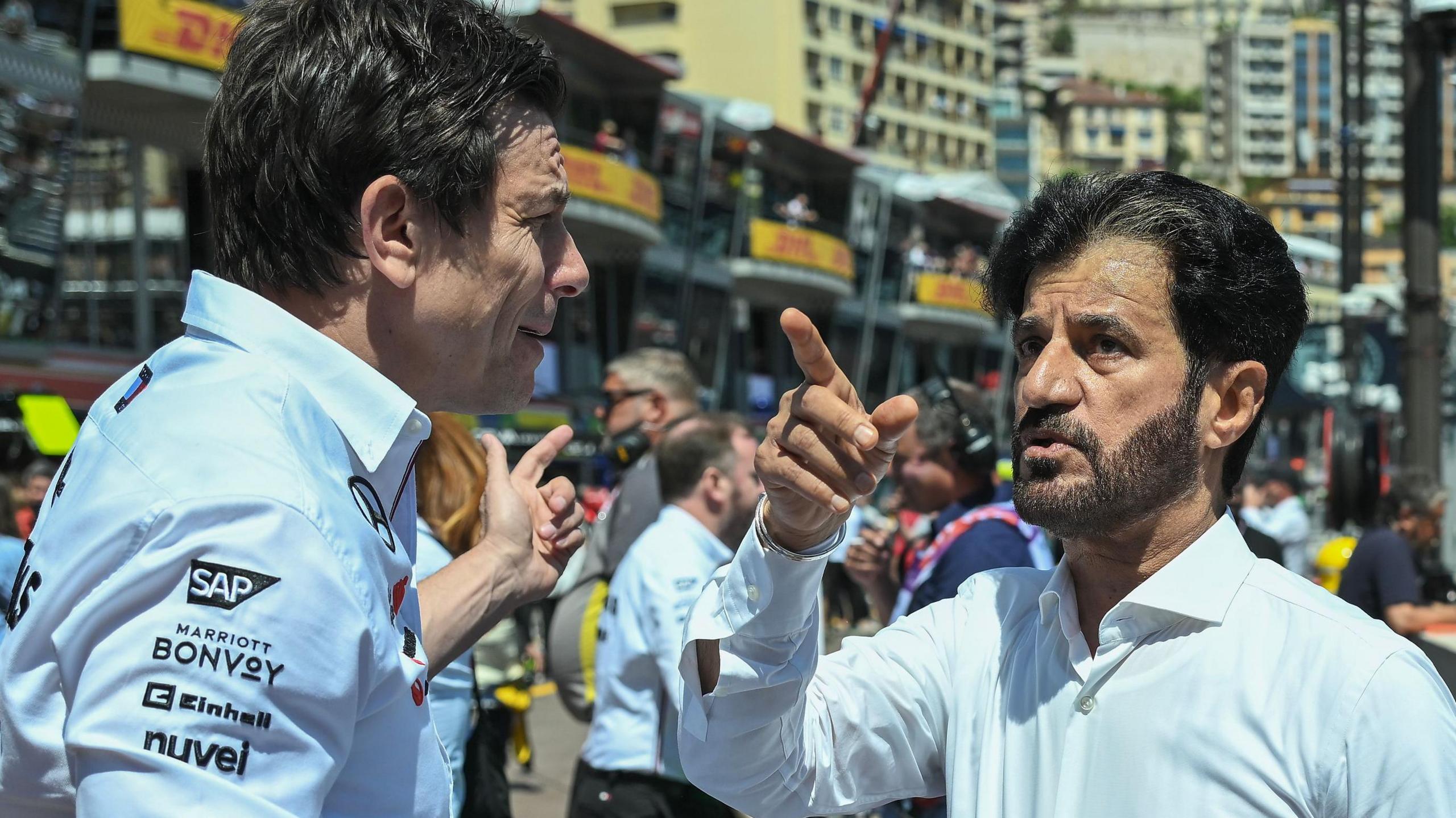- 18 Comments
Italian Grand Prix
Venue: Monza Dates: 5-7 September Race start: 14:00 BST on Sunday
An attempt by FIA president Mohammed Ben Sulayem to change Formula 1’s engine rules for 2029 has foundered on opposition from manufacturers.
Ben Sulayem had been pushing for a switch to 2.4-litre V8 naturally aspirated engines with a small amount of hybrid assistance.
This was despite an earlier push for V10s being rejected in April, and the fact that F1 is introducing all-new engine rules next year which are slated to run until the end of 2030.
A meeting had been scheduled for Thursday next week to discuss the plan.
But a number of senior sources within F1 have told BBC Sport Ben Sulayem cancelled the meeting on Friday because it had become clear it would be impossible to reach consensus with the engine manufacturers to introduce the change for 2029.
There was no major opposition to the idea of switching to 2.4-litre V8s, but there was disagreement about the proportion of power output to be provided by the hybrid part of the engine, whether there should be a turbocharger or not, and the timing.
It is the second time in six months that the president of motorsport’s governing body has been defeated in an attempt to change F1’s engine regulations.
His V10 plan was rejected at a meeting at the Bahrain Grand Prix, where it was agreed that hybrid and sustainable fuels were non-negotiable parts of F1’s engine future.
After that meeting, the FIA said it was “firmly committed to the 2026 regulations” but it was agreed that manufacturers would continue discussing the future direction of F1’s engine rules.
An FIA statement at the time said it had been agreed at the meeting that “electrification will always be a part of any future considerations” and that “the use of sustainable fuel will be an imperative”.
The 2026 rules stick with the current 1.6-litre V6 turbo hybrid architecture. But the hybrid element, although simplified, will increase to about 50% of the total power output of the engine from about 20% now. The rules also introduce fully sustainable fuels.
Despite the outcome of the Bahrain meeting, Ben Sulayem continued to push for naturally aspirated engines, with minimal hybrid capacity.
He had some support for a plan to change to a 2.4-litre V8 with a reduced percentage of hybrid power, but he did not have enough backing to change the rules for 2029, so chose to abandon the plan.
The FIA has been approached for comment but has so far not responded.
One source told BBC Sport Ben Sulayem was going “too fast, too soon to get everyone on side”.
Ford chief executive officer Jim Farley told BBC Sport in an exclusive interview: “Ford is very committed to partial electrification for performance.”
Honda, Mercedes and Audi made it clear at the time of the Bahrain meeting that they were fully committed to hybrid power.
Sources have said Ben Sulayem now intends to leave any attempt to change the rules until 2031.
F1’s governance agreements only run until 2030, so in theory the FIA can impose any rules it wants for 2031.
Related topics
- Formula 1
Source: BBC

Leave a Reply